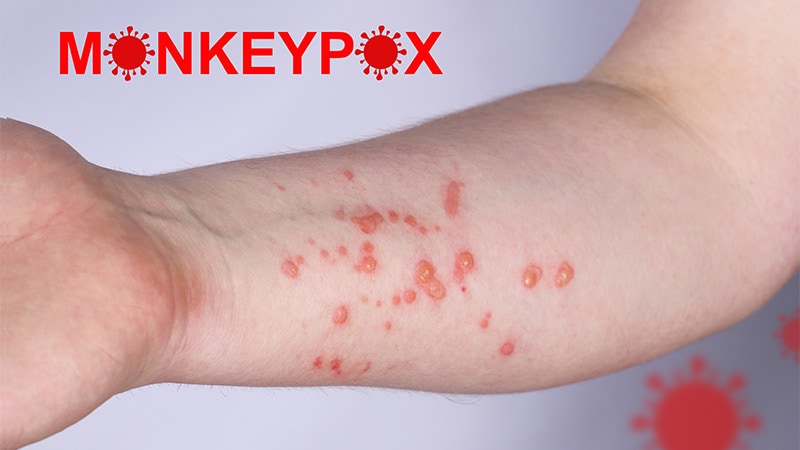Aug. 15, 2022 – The monkeypox virus has been confirmed in a pet dog, and it most likely spread from owners who had the virus, according to a new case report in The Lancet.
Before now, health experts hadn’t known whether pets can catch the virus. Although it spreads from animals to humans and has been found in wild animals, there haven’t been documented cases of human-to-animal spread in pets.
As of now, the theory is that any mammal can potentially catch and spread the virus to other mammals. In June, the CDC issued recommendations for people with monkeypox to avoid contact with their pets until they recover.
In this report, two men in France got monkeypox and were careful to isolate their dog from other pets and humans as soon as their symptoms started. But the dog continued to sleep in their bed. Two weeks later, the 4-year-old greyhound had the bumps typically seen with monkeypox and tested positive for the virus.
DNA analysis of monkeypox samples from the dog and one of the owners showed a 100% sequence homology, which means they were almost certainly connected. Both samples contained virus from the hMPXV-1 clade, lineage B.1, which is the subtype that has been spreading across the U.S. and Europe since April. In Paris, where the owners live, the strain has infected more than 1,700 people.
“To the best of our knowledge, the kinetics of symptom onset in both patients and, subsequently, in their dog suggest human-to-dog transmission of monkeypox virus,” the case report authors wrote.
“Given the dog’s skin and mucosal lesions as well as the positive monkeypox virus PCR results from anal and oral swabs, we hypothesize a real canine disease, not a simple carriage of the virus by close contact with humans or airborne transmission,” they wrote.
This means that monkeypox in pets should be treated as a potentially serious disease, they concluded, stressing the importance of isolating animals when a human becomes infected.
“Infected people should not take care of exposed pets,” according to the CDC recommendations. “The person with monkeypox should avoid close contact with the exposed animal, and when possible, ask another household member to care for the animal until the person with monkeypox is fully recovered.”
If owners must care for their pets while isolating at home, they should wash their hands and use an alcohol-based hand sanitizer before and after caring for the pets, the CDC says. People with monkeypox should also cover their skin rashes and lesions with long sleeves, long pants, and gloves and wear a well-fitting mask while caring for their pets. But owners shouldn’t put a mask on their pets.
Owners who become infected should also make sure that their pets can’t accidentally come into contact with contaminated items in the home, such as clothing, sheets, and towels that have been used by the person with monkeypox. Food, toys, and pet bedding also shouldn’t encounter an uncovered rash or skin lesions.
The CDC noted that owners shouldn’t surrender, euthanize, or abandon their pets due to potential exposure. Owners also shouldn’t wipe or bathe their pets with chemical disinfectants, alcohol, hydrogen peroxide, or other products such as hand sanitizer, counter-cleaning wipes, or other surface cleaners.
Although scientists don’t know all the symptoms of monkeypox infection in pets, owners should watch for potential signs of illness, including lack of energy or appetite, coughing, a runny or crusty nose, bloating, fever, bumps, and blister-like skin rashes. Owners can get their pet tested if the animal gets symptoms and has had close contact with a person who has a probable or confirmed monkeypox case.
More than 31,700 monkeypox cases have been reported in 89 countries, including 31,400 cases in 82 countries that don’t typically report the virus, according to the latest CDC data. The U.S. has reported more than 11,000 cases, followed by Spain with more than 5,000 cases and Germany and the U.K. with nearly 3,000 cases each.
In the U.S., New York has reported the highest number of cases, with more than 2,200, according to the latest CDC data. California has reported nearly 2,000, followed by Florida with more than 1,000 and Georgia and Texas with more than 800.
Source: Read Full Article
